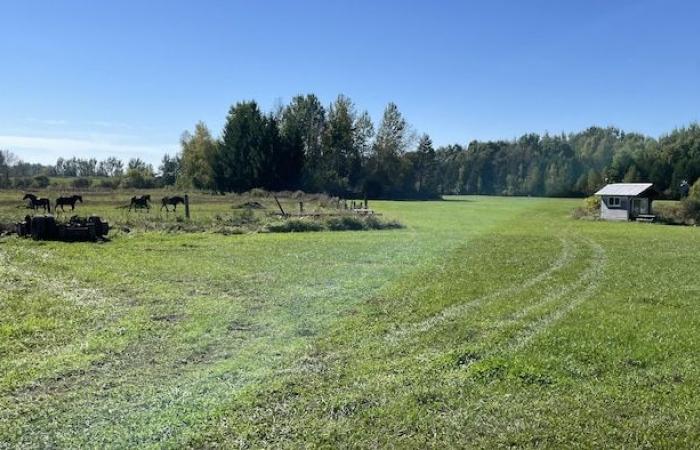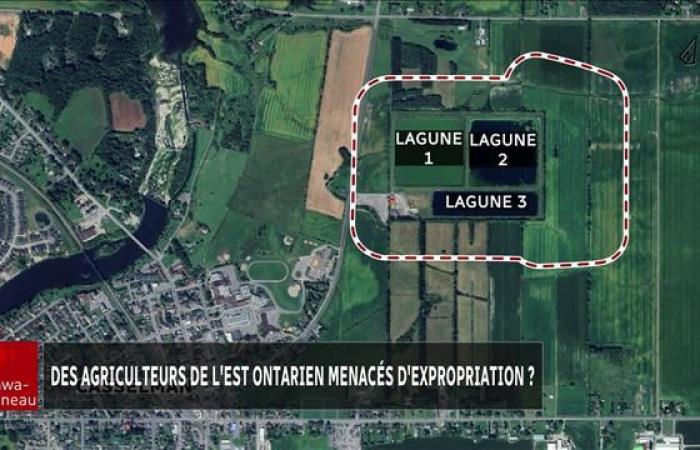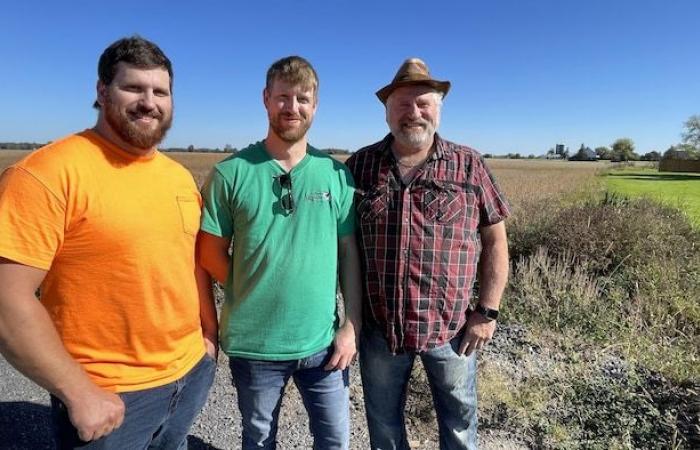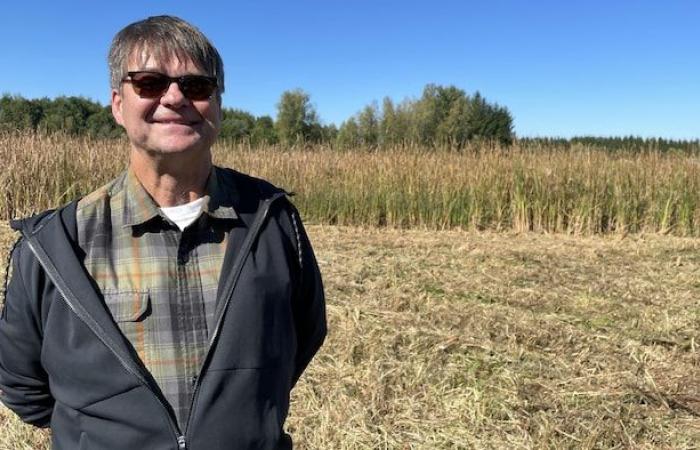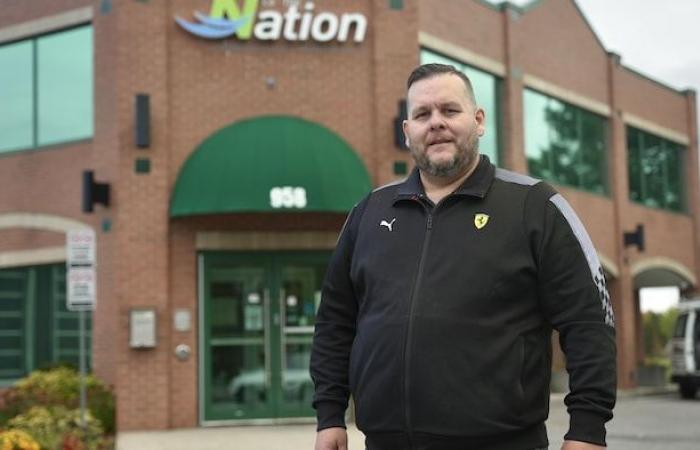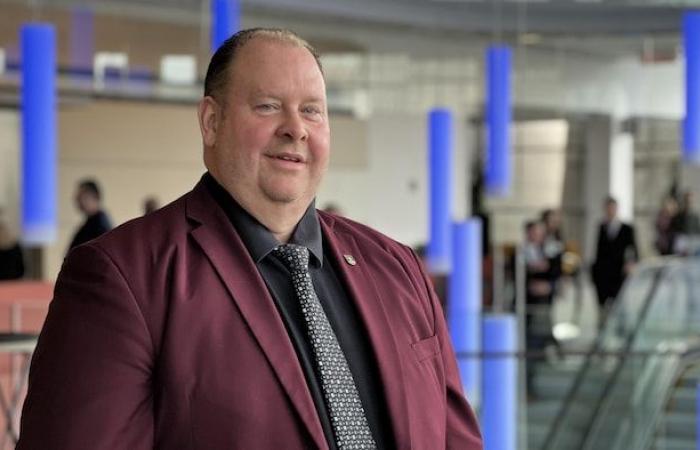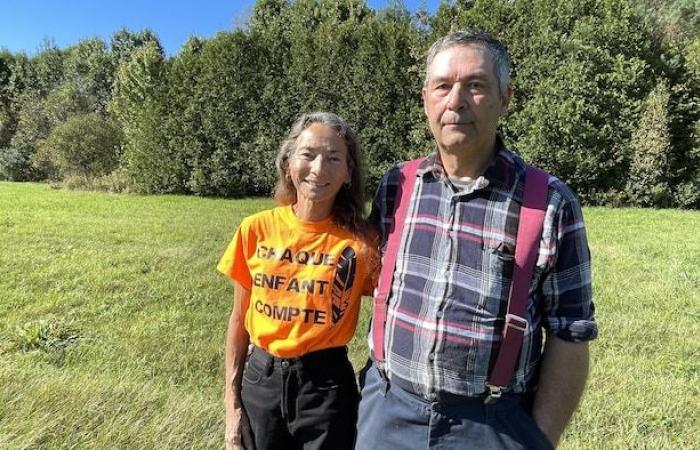Farmers from La Nation, in eastern Ontario, who have seen their land annexed to the municipality of Casselman, could be expropriated if work to expand a lagoon takes place.
The Nation municipal council last week approved the request submitted by Casselman to annex properties surrounding its lagoon system.
This annexation aims to facilitate the management of the infrastructure of the Casselman lagoon and to potentially allow its expansion. This expansion would require a 150 meter buffer zone to be erected around the lagoon, to comply with the requirements of the Ministry of Environment, Conservation and Parks.
Open in full screen mode
Half of this land could be expropriated by the municipality.
Photo: Radio-Canada / Nelly Alberola
Possibility of expropriations
In the event of expansion, the owners of the land now annexed would therefore be expropriated. This scenario is envisaged in the coming years due to the growth of the population in Casselman.
Since 1871 we have paid our taxes entirely to La Nation, but before that it was Cambridge. Now for nothing, he decides to take away our land, give it to the municipality of Casselman and then perhaps that will cause our death. We are going to die because we need all our land to be able to survive. That’s shocking!
denounces Louis Racine, fifth generation owner of Ferme Racine.
His son Marc-Antoine Racine, who belongs to the sixth generation of owners, speaks of a loss of 75% of the farm’s land if the expansion of the lagoons takes place.
Our farm has always been in a block and that’s what was our advantage, we don’t make any roads. From there to say that we are going to be expropriated of our own land and then with no land around, what does that mean? I’m going to have to lower my production, I don’t even know if I’ll be able to pay my two million mortgage. So at this point, we’re frustrated
he declares.
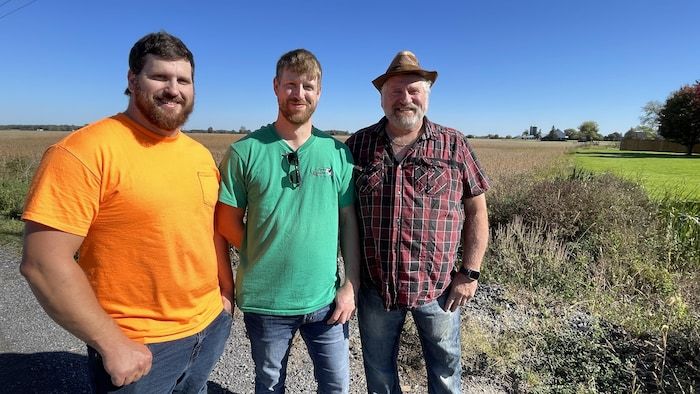
Open in full screen mode
Marc-Antoine, Étienne and Louis Racine (from left to right) have owned their farm for several generations.
Photo: Radio-Canada / Nelly Alberola
Marc Denis and his wife Micheline Mongeon also own a 36-acre farm where they have horses and pastures. They say they have planted around 15,000 trees there in addition to digging ponds for their retirement.
The buffer zone would take up about half of our land, about 16 or 18 acres, give or take. So this is unacceptable, it would be too close to our facilities and then it would prevent us from continuing to operate with our horses because there is not enough land to make hay if ever there was construction more than a buffer zone.
they fear.
Same story with Ferme Algépie in La Nation where the owners think they could lose more than a third of their land if the expropriation were to take place. Spokesperson Guy Laflèche even speaks of loss of value of the land surrounding this project.
Not only will agricultural farms lose value, but also all residents of Route 500 and 600 will also lose a lot of value because the lagoons will be behind their homes. And then as I have said several times, they will have their noses in the lagoon 365 days a year
he declares.
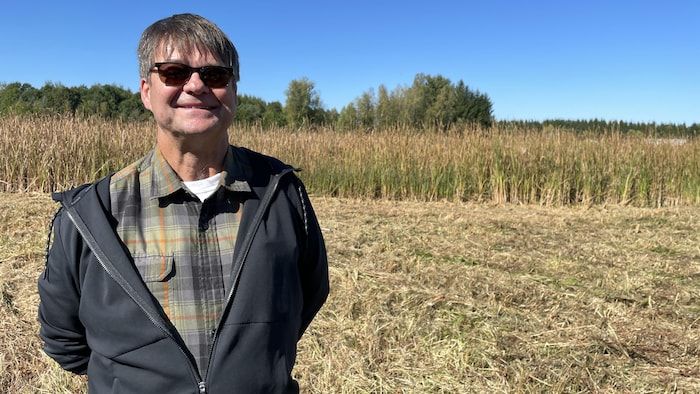
Open in full screen mode
Guy Laflèche is the spokesperson for Ferme Algépie at La Nation.
Photo : Radio-Canada / Nelly Albérola
Annexation is not synonymous with expropriation
The mayor of La Nation, Francis Brière, recognizes that it would be unfortunate
that expropriations take place and wishes to clarify that the annexation which was approved by the municipal council is not synonymous with expropriation.
No matter in which municipality the land is located, the ministry can enter and expropriate it. For us, there is not much that can ensure that we can change the process, if it is the optimal place
explains Francis Brière.
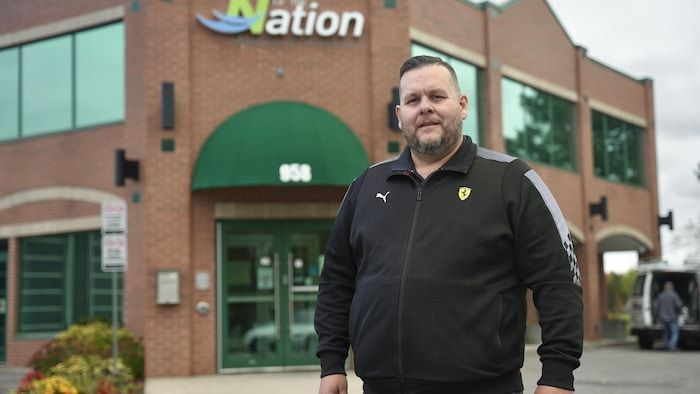
Open in full screen mode
Mayor of La Nation, Francis Brière (Archive photo)
Photo : Radio-Canada / Patrick Louiseize
For his part, the MP for the Glengarry-Prescott-Russell constituency, Stéphane Sarrazin, recalls that expropriation is one of the options considered, but that there will be sacrifices to make
due to population growth.
If we want to expand, we must have the land. It’s sad, but in our region, I don’t think we have a shortage of agricultural land. It’s never “fun”, but if we want to grow as a community, we have sacrifices to make
this M. Sarrazin.
According to him, it is important to remind the population that if we have the capacity to build more housing, to have more houses, we also have more revenue for the municipalities, so we can offer more services
.
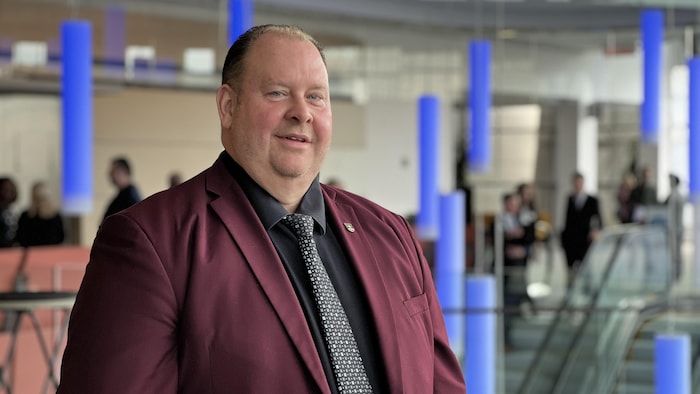
Open in full screen mode
Stéphane Sarrazin is the provincial deputy for Glengarry-Prescott-Russell. (Archive photo)
Photo : Radio-Canada / Frédéric Pepin
Moreover, the municipality of Casselman is in the process of developing a strategy so that its water infrastructure can respond to this growth, which is estimated at 9,380 inhabitants in 2047, according to the engineering and urban planning firm JL Richards. and associates. This company is responsible for examining the storage capacity of Casselman’s wastewater treatment system.
Please note, the renewal of the fire services agreement between the municipality of Casselman and The Nation was conditional on the annexation of the Nation’s lands. If The Nation did not ratify the annexation agreement, it would have lost its partnership with Casselman.
The mayor of Casselman, Geniève Lajoie, for her part refused Radio-Canada’s interview request.
Other alternatives
Guy Laflèche believes that Casselman could draw inspiration from other municipalities to resolve this type of problem without having to expropriate agricultural land.
There are different approaches that have been used for the lagoons in La Nation, for the municipality of Limoges where they do continuous discharges into the Castor River, which is still much smaller than the Nation River
he explains.
Mr. Laflèche assures that at this time the only challenge would be to ensure that the water flow in the river is sufficient for continuous discharge and that standards are met
.
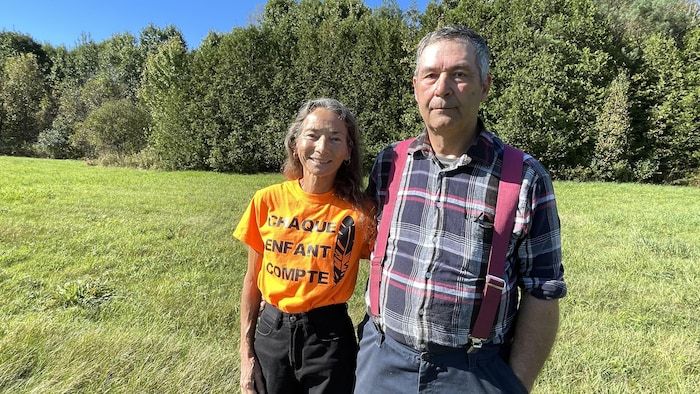
Open in full screen mode
Micheline Mongeon and her partner Marc Denis could lose half of their land.
Photo: Radio-Canada / Nelly Alberola
Marc Denis and Micheline Mongeon, who are both former forestry technicians, also share the same opinion. For them, if it has already worked elsewhere, why not in Casselman.
It’s just a matter of reviewing what has been done, already paid for by other worlds already concretely built, and then already proving that it works. Why don’t they want to save the money? Copy then just adapt it to their system
they suggest.
The couple maintains that it is not just a question of opposing each other, but of show that there are a ton of options that already exist
.
With information from Nelly Albérola

